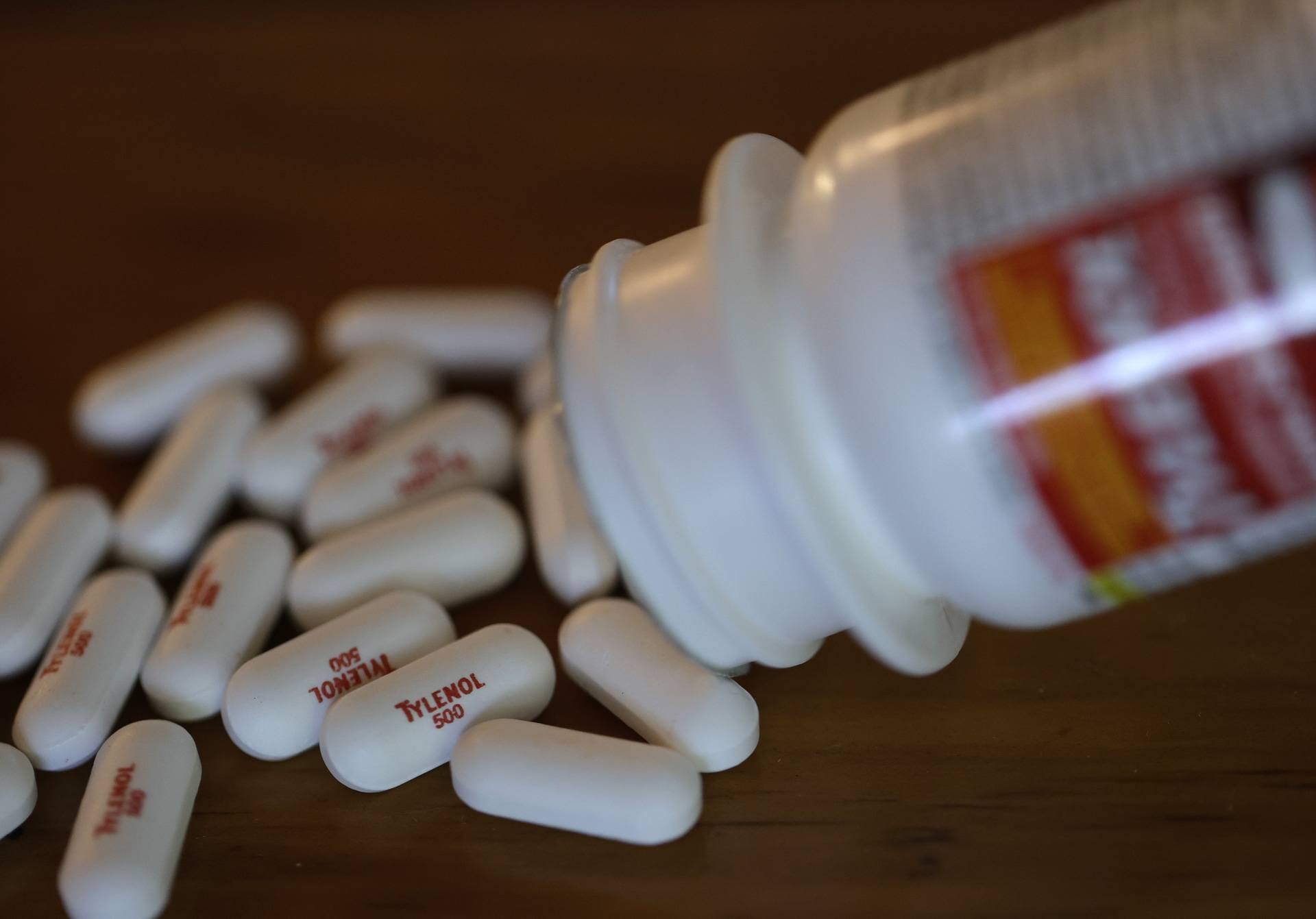By Kevin Scott,Us President Donald
Copyright stv

Donald Trump has claimed that taking paracetamol during pregnancy may be linked to autism.
The US President said there had been a “meteoric rise” in cases of autism and suggested that Tylenol – which is called paracetamol in the UK – is a potential cause.
But his comments have sparked a fierce backlash from scientists and medical professionals across the UK and beyond.
What exactly is Trump claiming?
The president says women should not take paracetamol “during the entire pregnancy”, adding that the US Food and Drug Administration would be notifying all US doctors with new guidance.
Health secretary Wes Streeting urged pregnant women to ignore Donald Trump’s claims about a link between taking paracetamol and autism.
The US president said there had been a “meteoric rise” in cases of autism and suggested that Tylenol, which is called paracetamol in the UK, is a potential cause.
“There are certain groups of people that don’t take vaccines and don’t take any pills, that have no autism,” the president claimed.
He added: “Ideally, you don’t take it at all, but if you have to, if you can’t tough it out, if there’s a problem, you’re going to end up doing it.”
A World Health Organisation spokesperson said on Tuesday that evidence of a link between the use of paracetamol during pregnancy and autism remained inconsistent and that the value of life-saving vaccines should not be questioned.
“The evidence remains inconsistent,” WHO spokesperson Tarik Jašarević told a Geneva press briefing when asked about a possible link between paracetamol use in pregnancy and autism.
“We know that vaccines do not cause autism. Vaccines, as I said, save countless lives. So this is something that science has proven, and these things should not be really questioned,” he added.
How have politicians in Scotland reacted to the claims?
Health secretary Neil Gray told STV News: “I know that pregnancy is an anxious time, sometimes, for parents and these comments will have added to that feeling of anxiety.
“I want to be absolutely clear that paracetamol is absolutely safe, that it is a recommended form of pain relief for people during pregnancy, and we will be doing everything we can to make sure that message continues to be clear because there is no evidence to support the claims that have been made.
“And there is no evidence to suggest that paracetamol is anything other than a safe form of pain relief. I think President Trump needs to be the one to substantiate the claim that has been made.
“I’m being very clear that the evidence I have, the evidence given to me by experts, is clear. Paracetamol is safe, and it continues to be a recommended form of pain relief for people during pregnancy.”
UK health secretary Wes Streeting urged pregnant women to ignore Trump’s claims about a link between taking paracetamol and autism.
But Streeting told STV’s Lorraine: “I would just say to people watching, don’t pay any attention whatsoever to what Donald Trump says about medicine.”
Streeting said: “I trust doctors over President Trump, frankly, on this”.
”I’ve just got to be really clear about this: there is no evidence to link the use of paracetamol by pregnant women to autism in their children. None.
“In fact, a major study was done back in 2024 in Sweden, involving 2.4 million children, and it did not uphold those claims.
“So I would just say to people watching, don’t pay any attention whatsoever to what Donald Trump says about medicine. In fact, don’t take even take my word for it, as a politician – listen to British doctors, British scientists, the NHS.
“It’s really important that at a time when you know there is scepticism, and I don’t think scepticism itself, asking questions is in itself a bad thing, by all means, ask questions – but we’ve got to follow medical science.”
In the UK, the NHS website says “paracetamol is the first choice of painkiller if you’re pregnant. It’s commonly taken during pregnancy and does not harm your baby”.
What is autism?
Autism, or autism spectrum disorder (ASD), refers to a broad range of conditions characterised by challenges with social skills, repetitive behaviours, speech and nonverbal communication.
Being autistic does not mean you have an illness or disease. It means your brain works in a different way from other people.
Autistic people may:
communicate, understand and interact with other people in a different wayexperience sights, sounds, smells, tastes and textures differentlyfind unfamiliar and unpredictable situations and social events more stressfulthrive when they’re in a familiar routine
Following Trump’s comments, autism charities in the UK issued a joint statement about a suggested link between the condition and the use of Tylenol (paracetamol) by pregnant women.
Dorry McLaughlin, chief executive of Scottish Autism, told STV News: “At Scottish Autism, we recognise that comments from the US administration will be a cause of anxiety and alarm among the autistic community.
“Autistic people and their families need acceptance, understanding and appropriate support, rather than wild claims around causes and cures that do not have a sound scientific basis.
“We hope that decision-makers in Scotland and the wider UK will reject such claims, commit to celebrating the many neurotypes that make up our society, and ensure that those who need support are able to access it.”
At least 1 in 100 people in Scotland are autistic. The true number may be higher. For example, statistics from the Scottish Government suggest 4.28% of children attending school are autistic.
What do medical professionals in the UK say?
Professor Alison Strath, Scotland’s chief pharmaceutical officer, said: “The strong evidence base available shows that paracetamol continues to be the safe, recommended choice for managing pain relief and fever during pregnancy.
“We know how important it is for pregnant women to feel confident about their healthcare choices, so please do continue following NHS guidance and have open conversations with your midwife, GP or pharmacist about any concerns.”
Dr Alison Cave, chief safety officer at the Medicines and Healthcare products Regulatory Agency (MHRA), said: “Patient safety is our top priority. There is no evidence that taking paracetamol during pregnancy causes autism in children.
“Paracetamol remains the recommended pain relief option for pregnant women when used as directed. Pregnant women should continue to follow existing NHS guidance and speak to their healthcare professional if they have questions about any medication during pregnancy.
“Untreated pain and fever can pose risks to the unborn baby, so it is important to manage these symptoms with the recommended treatment.
“Our advice on medicines in pregnancy is based on rigorous assessment of the best available scientific evidence. Any new evidence that could affect our recommendations would be carefully evaluated by our independent scientific experts.
“We continuously monitor the safety of all medicines, including those used during pregnancy, through robust monitoring and surveillance. We encourage anyone to report any suspected side effects to us via the Yellow Card scheme.”



